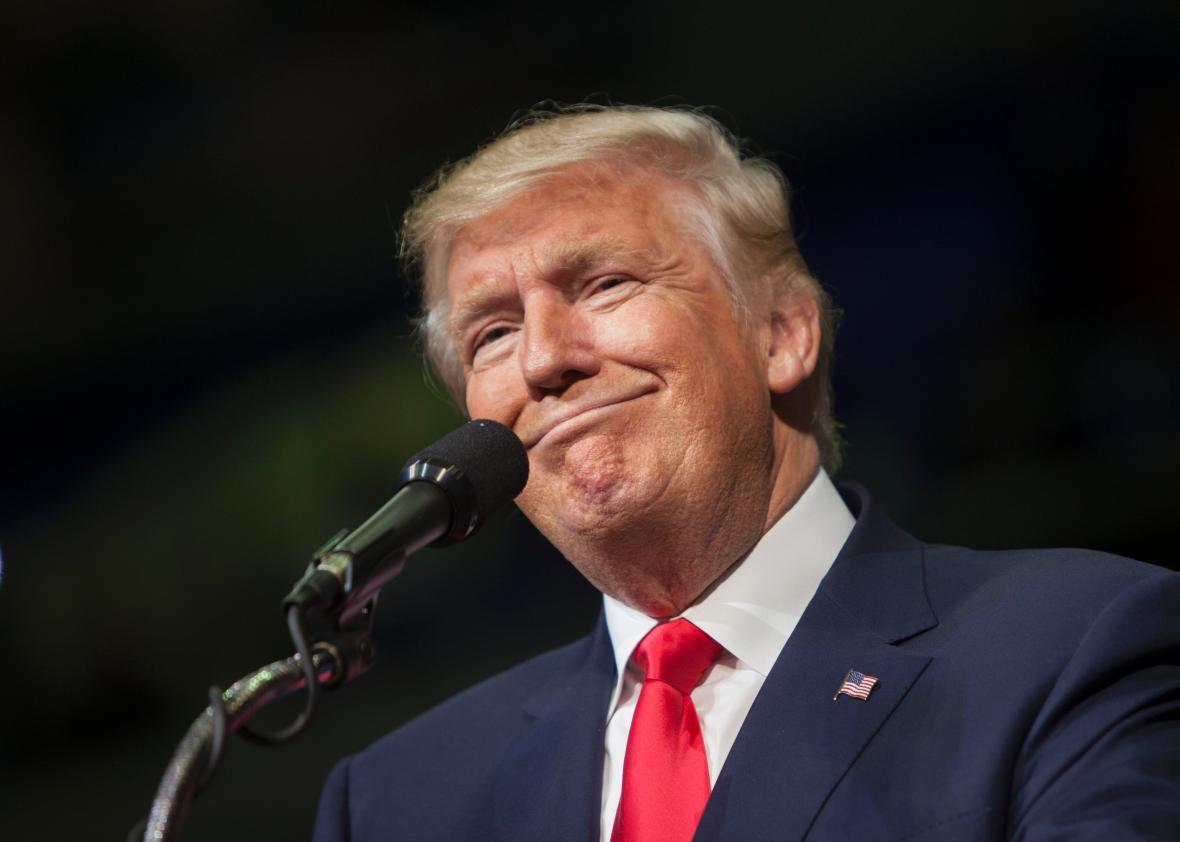As he reminded us this week, Donald Trump fully intends to repeal Obamacare if he wins the presidency. The man does not, however, have much of a plan to replace it. The scheme he has outlined is so utterly insubstantial that, depending on which think tank you ask, it would likely leave anywhere from about 15 million to 21 million fewer Americans with health insurance than there would be with the Affordable Care Act intact.*
And yet, even those grisly numbers don’t completely capture the human wreckage the GOP’s current health policy proposals would leave behind. That’s because, aside from erasing Obamacare from the statute books, Trump has said he would overhaul Medicaid by turning it into a block grant, likely resulting in massive cuts to the government’s insurance program for the poor. This detail of his agenda has gone largely unremarked upon by major media outlets, perhaps because it’s a long-standing and slightly technical goal that conventional conservatives have wanted for decades. But in terms of the number of Americans it would leave without health coverage, over time the move could be similarly momentous to killing the ACA.
In practice, block grants are designed to cap and shrink the size of federal programs. Instead of helping to cover the cost of every new Medicaid enrollee, as it does today, Washington would send each state a limited sum of cash to spend on the program each year. Once the funding ran out, states would either have to use more of their own tax dollars, or—more likely—stop signing up new beneficiaries. Congress would probably set the grants to grow slower than needed to keep up with the country’s combination of rising health care costs and population growth, meaning that over time, the government would spend less than under the current program, and insure fewer Americans.
Republicans have been itching to transform Medicaid into a block grant ever since they failed to during the ’90s battle over welfare reform. Recent proposals from Congress would end up cutting hundreds of billions of dollars from the program over a decade, likely leaving vast numbers of Americans uninsured. In 2012, the Kaiser Family Foundation estimated that a plan that Speaker of the House Paul Ryan put forward would have eventually reduced Medicaid enrollment by 14.3 million to 20.5 million within 10 years, depending on how well states could keep the program’s costs in check. Those figures don’t include the people who would lose their health coverage if Obamacare’s Medicaid expansion were eliminated.
Would Trump’s approach to block granting be so draconian? My guess is yes. We are talking about a man with minimal apparent interest in the details or consequences of public policy who, for all his election-cycle squabbles with Ryan, probably won’t resist Congress when it offers him a bill promising to do something he apparently wants to anyway. Whether or not the candidate actually realizes what block granting would do is another question. After all, his health care plan obliquely says that, “We must review basic options for Medicaid and work with states to ensure that those who want healthcare coverage can have it.” That makes it sound like Medicaid would somehow play a role in some sort of universal, bare-bones insurance scheme, which would be tough if Congress slashed its funding. But then, who knows if Trump has actually read his own white paper. The hateful authoritarian yam doesn’t really need to understand his policy agenda for it to cause an immense amount of suffering.
*Correction, Dec. 30, 2016: This post originally misstated that Trump’s plan would leave 15 million to 21 million fewer Americans without health insurance.
